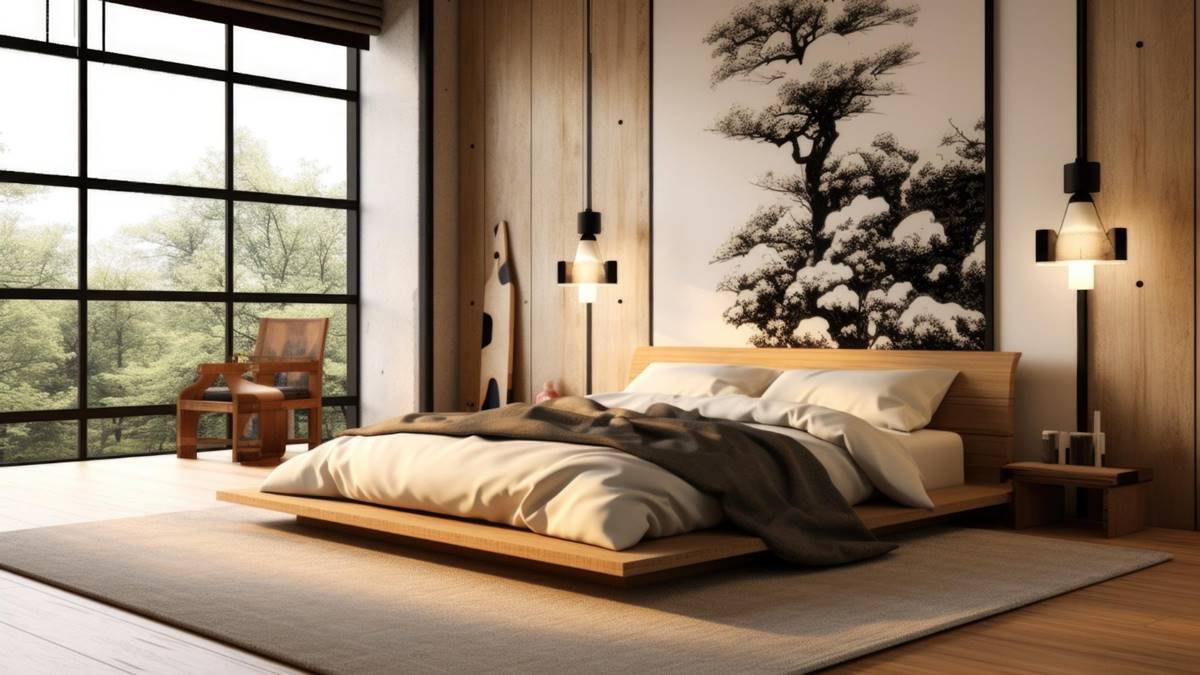The bedroom is more than just a place to rest—it’s a personal sanctuary where balance, energy, and emotional well-being converge. According to vloerbedekking.info, applying the ancient Chinese practice of Feng Shui can help transform your sleeping space into a haven of harmony and calm. By mindfully arranging furniture and choosing the right elements, you can invite peace and positive energy into one of the most intimate spaces in your home.
Feng Shui is all about the flow of energy, or “Chi,” and the way our surroundings influence our mood, health, and relationships. In the bedroom, where we are most vulnerable and where we recharge daily, proper energy flow is especially important. Creating a balanced environment here supports restful sleep, emotional clarity, and even deeper connection with your partner.
One of the first principles of Feng Shui is the placement of the bed. The ideal position is called the “command position,” where the bed is placed diagonally across from the door but not directly in line with it. This gives you a clear view of the entrance while maintaining a sense of protection and control. The bed should also be anchored by a solid wall, with a sturdy headboard and space on both sides for balance. Avoid placing the bed under a window or sloped ceiling, as these can create instability or restless energy.
Symmetry and balance are also key in Feng Shui design. Having matching nightstands and lamps on either side of the bed not only creates visual harmony but also promotes equality in relationships. Keep bedside tables uncluttered and use them to hold soothing items like soft lighting, books, or a plant with rounded leaves.
Lighting plays a vital role in setting the tone of the room. Choose soft, warm lighting over harsh overhead fixtures. Dimmer switches, salt lamps, or gentle sconces help create an atmosphere of calm and intimacy. Candles are also encouraged, as long as they are used safely—they represent the fire element and add a touch of warmth and passion.
Color selection should focus on calming and nurturing tones. Soft neutrals, gentle earth tones, and muted pastels are considered most beneficial. Avoid overly bright or stimulating colors like red or neon hues, which can disrupt rest. If you want to incorporate red for passion, use it in small, intentional accents rather than overwhelming the space.
Decluttering is essential in Feng Shui. Clutter blocks energy and creates mental noise. Remove unnecessary items from under the bed, avoid stacking laundry in corners, and keep electronics to a minimum. The bedroom should feel open, breathable, and reserved for rest, romance, and renewal.
Textures and materials matter, too. Natural fabrics like cotton, linen, or silk help regulate temperature and promote comfort. Layered bedding with cozy textures invites relaxation. A soft area rug beneath the bed or underfoot adds warmth and stability, grounding the room’s energy and encouraging a sense of safety.
Incorporate nature through houseplants, but choose carefully—plants with soft, rounded leaves are ideal. Avoid thorny or spiky varieties, which can bring sharp energy. If live plants don’t thrive in your bedroom, artwork that features calming landscapes or serene nature scenes can also serve this purpose.
Mirrors are a controversial topic in Feng Shui bedrooms. While they can amplify light and space, their placement is crucial. Avoid mirrors that face the bed directly, as they are believed to reflect energy back at you, causing restlessness or even strain in relationships. If you do have a mirror, consider covering it at night.
Another subtle but important tip: avoid storing work-related items or exercise equipment in the bedroom. These objects carry active or stressful energy that contradicts the peaceful vibe you’re trying to cultivate.
Creating a Feng Shui bedroom isn’t about following strict rules—it’s about intention. Think of it as aligning your surroundings with how you want to feel: calm, connected, and restored. The bedroom should tell your body and mind that it’s safe to relax, to let go, and to heal.
Whether you live in a studio apartment or a large home, Feng Shui offers simple, thoughtful ways to optimize your space. With small changes—like repositioning furniture, clearing clutter, or softening your color palette—you can create a bedroom that truly supports your well-being.
Source: vloerbedekking.info – Feng Shui slaapkamer: harmonie en rust in het hart van het huis
